Jacqueline Woodson interview, Part 1
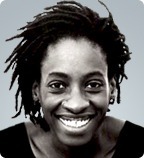 In May I had the opportunity to meet with Ms. Magazine associate editor Jessica Stites while she was visiting NYC. While strolling through the Brooklyn Botanic Garden, we tried to think of ways we could collaborate around the issue of equity in publishing. A conversation with veteran author Jacqueline Woodson was one of our ideas, and I'm happy to share this link to the interview on the Ms. blog ("Writing Children's Books While Black and Feminist"). Here on my own blog I've decided to post the unedited transcript in two parts; you can also find video footage of our hour-long talk on YouTube. Enjoy!
In May I had the opportunity to meet with Ms. Magazine associate editor Jessica Stites while she was visiting NYC. While strolling through the Brooklyn Botanic Garden, we tried to think of ways we could collaborate around the issue of equity in publishing. A conversation with veteran author Jacqueline Woodson was one of our ideas, and I'm happy to share this link to the interview on the Ms. blog ("Writing Children's Books While Black and Feminist"). Here on my own blog I've decided to post the unedited transcript in two parts; you can also find video footage of our hour-long talk on YouTube. Enjoy!
ZE: Thank you so much for taking the time to speak with me. Let's start with your early influences. Scholar Rudine Sims Bishop has argued that, "readers often seek their mirrors in books." She also suggests that books can serve as "mirrors, windows, and sliding glass doors." As a child, what books offered you a reflection of yourself, and which ones opened up another world for you?
JW: That's a good question. I don't know the sliding glass door reference. I know about the mirror…
ZE: The sliding glass door often gets left out of it.
JW: Interesting.
ZE: So the window, obviously, is that you can look into someone else's world, but to me that's voyeurism. So I love that she suggests you can open that sliding glass door and enter that world and kind of exist as an equal with other kinds of people.
 JW: Yeah, that's important. I'm glad that's in there. I think that looking back on it, now that I'm past my angry thirties of [having] no mirrors, I feel like I was able to make the journey of kind of finding myself in any book. Because that was all I had. So I would read something like Are you There God? It's Me, Margaret and I was flat-chested like Margaret so—ok, this was where we kind of met each other. And the books that really kind of opened doors for me—one book that in retrospect made me gasp was Stevie by John Steptoe. Just the fact that they talked like I did, they were brown like I was brown. They lived in the city, it looked like they lived in the apartment in the illustrations. And everything just made me say, "Whoa, I know these people!" And Mildred Taylor's Roll of Thunder, Hear My Cry just 'cause my
JW: Yeah, that's important. I'm glad that's in there. I think that looking back on it, now that I'm past my angry thirties of [having] no mirrors, I feel like I was able to make the journey of kind of finding myself in any book. Because that was all I had. So I would read something like Are you There God? It's Me, Margaret and I was flat-chested like Margaret so—ok, this was where we kind of met each other. And the books that really kind of opened doors for me—one book that in retrospect made me gasp was Stevie by John Steptoe. Just the fact that they talked like I did, they were brown like I was brown. They lived in the city, it looked like they lived in the apartment in the illustrations. And everything just made me say, "Whoa, I know these people!" And Mildred Taylor's Roll of Thunder, Hear My Cry just 'cause my 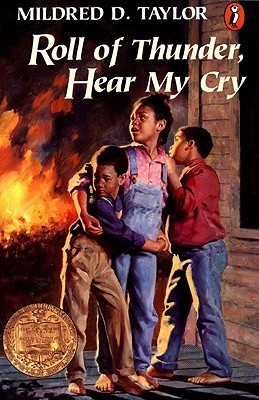 family was from the South and I think that's a book that I've read so many times and each time I read it, it never gets old. I mean, I've revisited some of the books from my childhood and some of them feel real different than when I was reading them as a kid, but that one has held up. Zeely was one of the first books I read that was by an African American about African American people. Sounder to this day still makes me angry.
family was from the South and I think that's a book that I've read so many times and each time I read it, it never gets old. I mean, I've revisited some of the books from my childhood and some of them feel real different than when I was reading them as a kid, but that one has held up. Zeely was one of the first books I read that was by an African American about African American people. Sounder to this day still makes me angry.
ZE: Reading it?
JW: Yeah. It's a room I'll walk out of.
ZE: Did you also see the film when you were a kid?
JW: I saw the film and I actually loved the film but the book was just—ugh.
ZE: What made you angry about it?
JW: It was supposed to be my people and it wasn't and I couldn't tell how it wasn't. So I felt like, almost kind of like I wasn't, like something almost was wrong with me. Because if this is supposed to be who we are and this is so different from who I am and who I know, then how am I legitimate? And you know, as an adult I realized that no one had a name except the dog. They were supposed to be Southerners but they never touched each other, and you know Southerners are always hugging and kissing and saying, "Look how you've grown!" And remarking on things you don't want them to remark on.
ZE: They were a sharecropping family, weren't they?
JW: They were sharecroppers, they were poor and sad. So this writer, who was not African American, could not get inside their story. I don't know what his 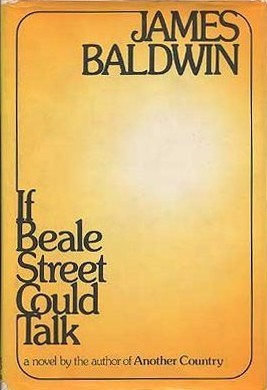 connection was. I think in the forward he talks about someone telling him that story, like an old black man telling him the story of that family. But the fact that he could create a story where he couldn't see any hope or happiness in it…and again, I didn't know this when I was a kid. I just knew this book made me really angry. Later on, of course, I came to—I remember If Beale Street Could Talk when I was in the 7th grade maybe. Tish and Fonny, and they lived in Harlem or somewhere in the city and it was such a loving love story. I also remember reading The Bluest Eye when I was a kid.
connection was. I think in the forward he talks about someone telling him that story, like an old black man telling him the story of that family. But the fact that he could create a story where he couldn't see any hope or happiness in it…and again, I didn't know this when I was a kid. I just knew this book made me really angry. Later on, of course, I came to—I remember If Beale Street Could Talk when I was in the 7th grade maybe. Tish and Fonny, and they lived in Harlem or somewhere in the city and it was such a loving love story. I also remember reading The Bluest Eye when I was a kid.
ZE: You talked before about your "angry thirties." I don't detect rage in your writing; I actually see a lot of grace. Where did that rage come from and where did it go?
JW: That's a really good question. I think the rage was more in my life. It wasn't until my early 30s that I really started thinking about the disparity between race and economic class, and all of those ways in which the world just wasn't working. I think that's when I started coming into more of a sense of myself as an outsider. And as a kid I felt it all the time because I was a Jehovah's Witness and you know, my family was kind of different from other families on the block. But in terms of my growing consciousness of who I was and how I fit into the greater scheme of things, it was kind of shocking to realize that no, I wasn't part of this privileged majority that had an education before college and that really had a lot of privilege and with it, entitlement. And I kind of had to learn about my right to be here. And that was through a lot of anger and then acceptance—not of that world as it was, but of the fact that yeah, I do have a right to be here and I do have something to say and I am as smart as and sometimes smarter than people who've been well educated or are able to pay for a lot of education. So that was definitely a period of growing, and growing through that anger, and I think the way the grace came through in the writing was it was cathartic for me. I think there were probably drafts that were angrier than other drafts and I realized I'm not going to be heard through the rage, I'll be heard through the love. And it's kind of what began to inform all of my life, including my writing. If that makes sense.
ZE: That makes a lot of sense, and it's something I could probably learn from since I'm still in my angry thirties! You're the parent of two children. In 2011, how easy is it for your children to find their "mirrors" in books? Has motherhood changed the way you write? I know you took your daughter to a literary festival not long ago, which I think is great, and I'd love to know how that went.
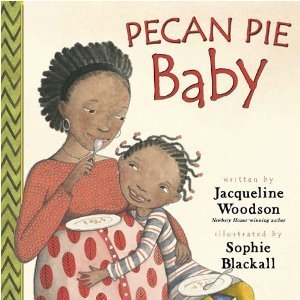 JW: Oh, goodness. One thing motherhood has done is it's given me even more of a sense of urgency in terms of what's at stake. What's at stake for how my children will see themselves in the world. I think before I was a parent I thought about it in terms of the child and children, but I didn't have a real personal connection to it except the connection that was me as a child and wanting what I didn't have as a child in the literature that I created. And wanting that for other children. Then once I had my children and seeing that they needed something [got me] really thinking more deeply and urgently. My daughter does not read my books. She says, "I'm not a fan." And maybe one day she will.
JW: Oh, goodness. One thing motherhood has done is it's given me even more of a sense of urgency in terms of what's at stake. What's at stake for how my children will see themselves in the world. I think before I was a parent I thought about it in terms of the child and children, but I didn't have a real personal connection to it except the connection that was me as a child and wanting what I didn't have as a child in the literature that I created. And wanting that for other children. Then once I had my children and seeing that they needed something [got me] really thinking more deeply and urgently. My daughter does not read my books. She says, "I'm not a fan." And maybe one day she will.
ZE: You're kidding!
JW: Yeah, she says she likes funny stuff. I'm not that funny. But my son reads or will let us read the picture books to him. We were at Putnam yesterday and they have posters of all the Caldecott and Newbery and Coretta Scott King winners and every time he came across one of my books he'd say, "I wrote that one Mommy." He'll also say he wrote Make Way for Ducklings. It's hysterical. But it definitely brought that sense of urgency to me. And I think I got funnier because my kids make me laugh so much. I never had that censor flag that I think some young writers have—you know, this is going to embarrass my family or make my parents mad at me. But I think now, with children, I do think if Toshi reads this in ten years, how is this going to make her feel or what is she going to think about me, and where I was in this place and it definitely informs how I'm writing stuff. When I was writing Beneath the Meth Moon, the new YA book about a girl addicted to meth, in terms of thinking about a young person addicted to drugs and Toshi coming to this book when she's 14 and thinking, "How does Mom know so much about this?" but also having that experience of that world in a way that hopefully scares her away from drugs but also makes her think about the bigger world and the greater good in a way that hopefully writing does for all people. But it is a tighter personal connection in terms of thinking about how my kids come to my writing.
ZE: I notice that in a lot of your books you represent alternately configured families and we just had the Marriage Equality Act passed here in NY state. How hard is it for you to sell stories that show children who have alternate realities?
 JW: I love the way you put that—"alternate realities." It hasn't been a huge struggle in that way. I haven't really done the two mom/two dad thing, so I haven't kind of pushed that boundary. I think mainly because that story hasn't come to me yet in a way to tell it that's—when I think of a two-mom or two-dad family, I'm thinking, "This is the first thing I'm thinking about—this kid has two moms or two dads." And that's not the story. Kids don't care about that. So I'm constantly trying to think about what the deeper story is in there. Because I think novels do fail when they try to push the issue somehow, when they try to be didactic. And I never want to do that. But I do want to write about people who haven't historically been seen in literature and I think publishers are open to that as long as they like the writing. So when I put a single mom on the page, when I put a girl being raised by her grandma on the page, when I put a dad who's incarcerated on the page, when I put familial or regular foster care on the page, I have a sense of the deeper story. I was raised by my mom and grandma, so I know all the stories around that and not just, "I live with my grandma and here's that story." I think because the stories are multilayered the family can exist in the fiction in a way that is, of course, "universal," meaning other people will read it and like it and publishers will buy it. But I have had letters from The Notebooks of Melanin Sun—the first time I put a queer mom on the page people were upset about that.
JW: I love the way you put that—"alternate realities." It hasn't been a huge struggle in that way. I haven't really done the two mom/two dad thing, so I haven't kind of pushed that boundary. I think mainly because that story hasn't come to me yet in a way to tell it that's—when I think of a two-mom or two-dad family, I'm thinking, "This is the first thing I'm thinking about—this kid has two moms or two dads." And that's not the story. Kids don't care about that. So I'm constantly trying to think about what the deeper story is in there. Because I think novels do fail when they try to push the issue somehow, when they try to be didactic. And I never want to do that. But I do want to write about people who haven't historically been seen in literature and I think publishers are open to that as long as they like the writing. So when I put a single mom on the page, when I put a girl being raised by her grandma on the page, when I put a dad who's incarcerated on the page, when I put familial or regular foster care on the page, I have a sense of the deeper story. I was raised by my mom and grandma, so I know all the stories around that and not just, "I live with my grandma and here's that story." I think because the stories are multilayered the family can exist in the fiction in a way that is, of course, "universal," meaning other people will read it and like it and publishers will buy it. But I have had letters from The Notebooks of Melanin Sun—the first time I put a queer mom on the page people were upset about that.
ZE: Really?
JW: Yeah, I think part of it was that it was the '90s and the Christian right was really starting to skyrocket and it was published by Scholastic, which was a mistake in itself. You can't really do stuff at a conservative publisher and expect it to have the kind of life it would at a place that's more comfortable dealing with stuff like that. So again, I try not to think about any issue in the book. To me the families are families and this is what families are. To me, the mom/dad family is an alternative to my family. And so few of them exist, even on our block. That it's kind of like, when you see that it's like, "Wow—they're still together? Wow—that person's being raised by a mom and dad."
ZE: I would love to know what you think about the Iowa marriage pledge signed by some Republicans. Have you heard about that? It has a clause that claims African American children were more likely to be raised in a two-parent family under slavery than since President Obama was elected in 2008.
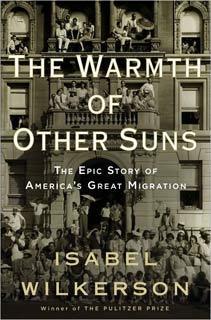 JW: Oh, man. Well, [those] Republicans don't know what they're talking about. It's so ridiculous because in ten years, of course, they're going to realize that that wasn't the case. When you read something like The Warmth of Other Suns by Isabel Wilkerson. In it she talks about how all the statistics at that time showed that people who were part of the Negro migration were more inclined to have children out of wedlock, to be less educated and less employed. And then twenty years later they did another study and realized that those same people were more inclined to have families that were "intact" and have higher education and have two or three jobs, who had come here with that idea of working and having a family and creating a better life. So when Republicans say that about African Americans I just have to roll my eyes, and say, "Ok, whatever you need to say about us right now to make you feel stronger, you can have it if that's all you have." When I took Toshi with me to Virginia for the conference, I made her listen to The Warmth of Other Suns on the way down and back up. She was like, "This is so boring." Chris Myers is doing a video and asking kids what does it mean to be American?
JW: Oh, man. Well, [those] Republicans don't know what they're talking about. It's so ridiculous because in ten years, of course, they're going to realize that that wasn't the case. When you read something like The Warmth of Other Suns by Isabel Wilkerson. In it she talks about how all the statistics at that time showed that people who were part of the Negro migration were more inclined to have children out of wedlock, to be less educated and less employed. And then twenty years later they did another study and realized that those same people were more inclined to have families that were "intact" and have higher education and have two or three jobs, who had come here with that idea of working and having a family and creating a better life. So when Republicans say that about African Americans I just have to roll my eyes, and say, "Ok, whatever you need to say about us right now to make you feel stronger, you can have it if that's all you have." When I took Toshi with me to Virginia for the conference, I made her listen to The Warmth of Other Suns on the way down and back up. She was like, "This is so boring." Chris Myers is doing a video and asking kids what does it mean to be American?
ZE: For the book he did with his dad [We Are America: A Tribute from the Heart].
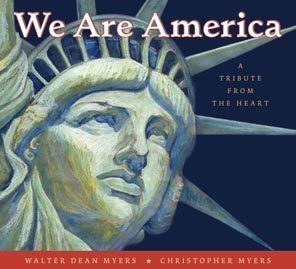 JW: Right. So he's having this blog with videos on it. And I interviewed Toshi out here and she was like, "Whatever. I live in Brooklyn, I'm in Park Slope. It's America." And I said, "Come on, honey, you can be deeper than this." And she said, "What? America is America." So I said, "What does it mean to be African American?" And she said, "Well, you know, I was listening to this book with you, The Warmth of Other Suns, and I know that black people did a lot of good stuff, like we built this country. And if it wasn't for African Americans we wouldn't have Michael Jordan or Michael Jackson." And I said, "Ok, how about some non-celebrities, like the president?" And she said, "Yeah, we wouldn't even have Obama and I realize I could be president!" And that's so interesting because I don't think she can be president, you know, I'm not there yet—thinking a black woman could! I'm still at the point of thinking, "Wow, we have a black man as president." But she couldn't attach unless it was African American. "American" meant nothing to her.
JW: Right. So he's having this blog with videos on it. And I interviewed Toshi out here and she was like, "Whatever. I live in Brooklyn, I'm in Park Slope. It's America." And I said, "Come on, honey, you can be deeper than this." And she said, "What? America is America." So I said, "What does it mean to be African American?" And she said, "Well, you know, I was listening to this book with you, The Warmth of Other Suns, and I know that black people did a lot of good stuff, like we built this country. And if it wasn't for African Americans we wouldn't have Michael Jordan or Michael Jackson." And I said, "Ok, how about some non-celebrities, like the president?" And she said, "Yeah, we wouldn't even have Obama and I realize I could be president!" And that's so interesting because I don't think she can be president, you know, I'm not there yet—thinking a black woman could! I'm still at the point of thinking, "Wow, we have a black man as president." But she couldn't attach unless it was African American. "American" meant nothing to her.
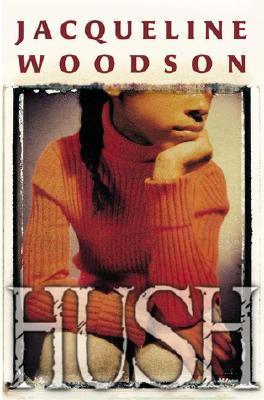 ZE: You have written more than 30 books about an incredibly wide range of experiences, including foster care, teen pregnancy, witness protection programs, police brutality, and racial ambiguity, and incarceration. I notice that many of your characters move from isolation/alienation to a place of belonging. How do you develop ideas for your books, and is there a particular overarching message you want to send young readers?
ZE: You have written more than 30 books about an incredibly wide range of experiences, including foster care, teen pregnancy, witness protection programs, police brutality, and racial ambiguity, and incarceration. I notice that many of your characters move from isolation/alienation to a place of belonging. How do you develop ideas for your books, and is there a particular overarching message you want to send young readers?
JW: It's interesting that you say they move from isolation to belonging because that's kind of what I did in my thirties. And so I think I'm telling that story again and again in different ways and constantly figuring it out maybe just a little more deeply than the last time. Basically I start with the character, the characters have always come to me first and then I figure out what it is they want and how they're going to get it. I feel like so much of my life is trying to figure out what they want. Asking myself all of these questions: who is this person? Where do they live? What do they look like? What are the paradoxes in their lives? In terms of a message, I never know what a book is about until someone says to me, "I read your book about blah blah blah" and I'm like, "Oh, ok, that's what it's about?" I feel I'm so far removed, I'm very much in the process of writing but it's almost like being in a zone, really. And then with the characters and their world and by creating their world I walk deeper into their world and start seeing it clearer and clearer with each revision. Then as the characters get more clarity and the book starts moving along and then is finally finished, when I stand back I know I've written these characters and told this story but I really never know what the story's trying to say, really, until I read the good reviews because I don't read the bad ones.
ZE: I don't think there are any, Jackie!
JW: I beg to differ! I don't think I have a message aside from what I believe myself, which is that we all have a right to be here, and trying to show the many ways that people can be here and be whole. Which is what I'm constantly trying to reinforce in myself and my kids and the community. So if someone said, "Why do I write?" I think because this is the power I have, this is what I know how to do to feel powerful and to make others feel powerful.
ZE: If someone said your characters make African Americans seem noble, how would you respond?
JW: We are noble!
ZE: Some of us—some of the time!
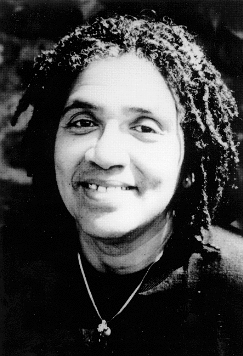 JW: I think the fact that we're even here and standing is amazing. Given how we got to this country. You know, in the words of Audre Lorde, "We were never meant to survive."
JW: I think the fact that we're even here and standing is amazing. Given how we got to this country. You know, in the words of Audre Lorde, "We were never meant to survive."
ZE: "Not as human beings."
JW: Yeah! To go from dehumanization to humanization to creating change—or not creating change. But I think it's a miracle for a lot of people to be walking through the world given what their lives have been. But when I look at our people—not just African Americans but Caribbean Americans. Black people in this country did not come here easily, no matter how they got here. And even when you look at something like income versus wealth, and how people have been able to raise families and send their kids to college and even buy a home. We did not get 40 acres and a mule—some did, but a lot didn't, it's bootstraps. I always talk about, especially a lot of people in Park Slope, there is always some hidden money somewhere. Suddenly somebody has a down payment on a house…
ZE: That's wealth.
JW: Yeah, that's exactly what it is. And for the most part we don't have wealth. We have income and maybe we have one generation of wealth. What we have is the wealth of our history and the wealth of our survival. The fact that when all else fails, this is what we can come back to. And it helps me when I'm writing a book—I'm writing the 30th book and I'm still like, "I don't think I can do this."
ZE: Really?
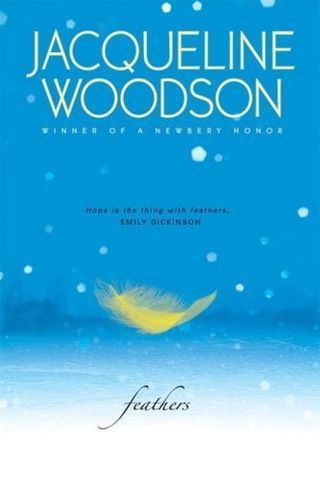 JW: Yeah! I'm sorry, it never goes away. That's one of the big bummers about writing. I tend to think, "That was a fluke," or "I knew I was able to do it for that one but can I do it for this?" And also because the stories, going from Christianity in Feathers to race and identity politics to meth in a Midwestern white community…
JW: Yeah! I'm sorry, it never goes away. That's one of the big bummers about writing. I tend to think, "That was a fluke," or "I knew I was able to do it for that one but can I do it for this?" And also because the stories, going from Christianity in Feathers to race and identity politics to meth in a Midwestern white community…
ZE: Do you do that on purpose? Do you push yourself into areas that make you feel insecure maybe?
JW: Well, Dr. Zetta…I just get bored! I don't want to revisit the same places because I don't think I have any more stories to tell there. So that's also why it's hard to write sequels. Because it's like, "I've done that!"
ZE: Oh yes…
JW: Are you in the middle of sequel writing?
ZE: I'm in the middle of two sequels. And I just read Behind You, which you kindly gave me, thank you. And I thought, "She called it a companion book." And I remembered having a conversation with another author who said, "Stop calling it a sequel. Call it a companion book because then it can exist on its own. And you don't have to fuss and worry about continuity." But it has to stand on its own in terms of dramatic action and that I struggle with a lot.
JW: But you know, from one book to the other they want different things.
ZE: The characters want different things, but readers have expectations from the first book.
JW: Yeah, that's true.
ZE: "Is she going to end up with so-and-so? And I know you didn't make her do that!" And I just think, let me just finish the book before anyone else says anything.
JW: It's true. I tend not to talk about it until I'm way deep in it and have a sense of where it's going.
[Part 2 of this interview will be posted tomorrow, but you can watch the entire interview now on You Tube.]












